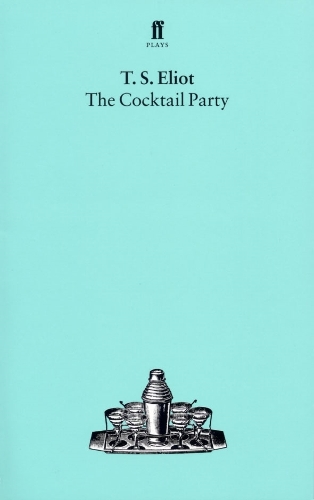
The Cocktail Party
(Paperback, Main)
Publishing Details
The Cocktail Party
By (Author) T. S. Eliot
Faber & Faber
Faber & Faber
1st July 2005
8th March 1976
Main
United Kingdom
Classifications
General
Non Fiction
822.912
Physical Properties
Paperback
192
Width 125mm, Height 196mm, Spine 15mm
205g
Description
Obviously something more than a successful play, it is the practical demonstration of a patently conceived theory of dramatic form, and as such of high historical interest.' Times Literary Supplement'Eliot has attempted here something very daring and well worth doing. He has taken the ordinary West End drawing room comedy convention - understatement, upper-class accents and all - and used it as a vehicle for utterly serious ideas.' Observer
Author Bio
Thomas Stearns Eliot was born in St Louis, Missouri in 1888. He was educated at Harvard, at the Sorbonne in Paris, and at Merton College, Oxford. His early poetry was profoundly influenced by the French symbolists, especially Baudelaire and Laforgue. In his academic studies he specialised in philosophy and logic. His doctoral thesis was on F. H. Bradley. He settled in England in 1915, the year in which he married Vivienne Haigh-Wood and also met his contemporary Ezra Pound for the first time. After teaching for a year or so he joined Lloyds Bank in the City of London in 1917, the year in which he published his first volume, Prufrock and Other Observations. In 1919 Poems was hand-printed by Leonard and Virginia Woolf. His first collection of essays, The Sacred Wood, appeared in 1920. His most famous work, The Waste Land, was published in 1922, the same year as James Joyce's Ulysses. The poem was included in the first issue of his jou
